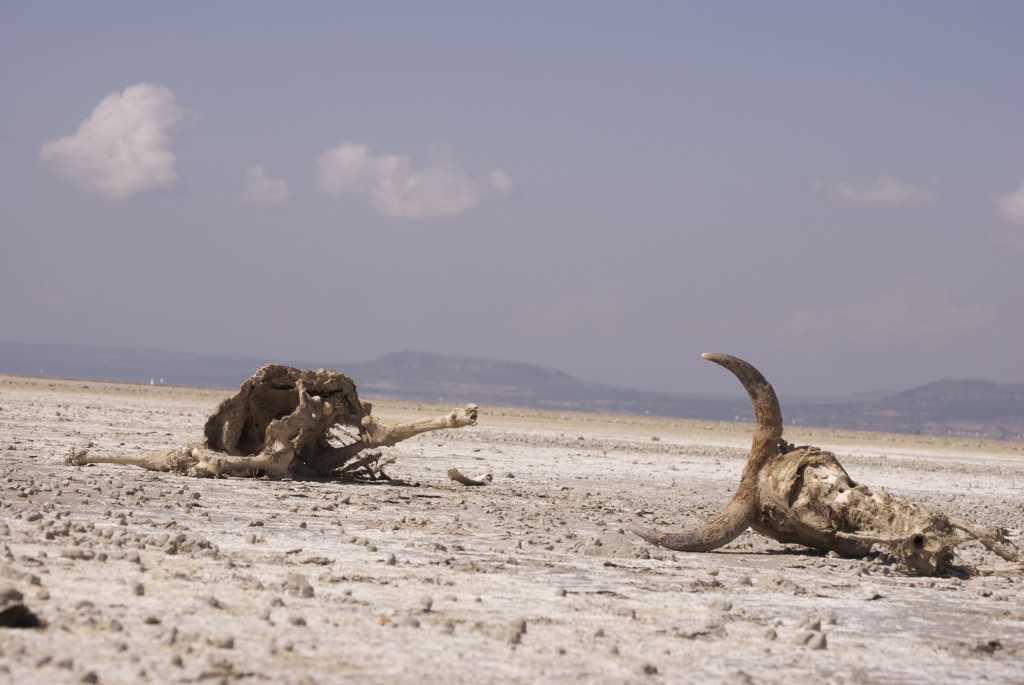The Climate Is Changing Faster Than Animals Have Ever Evolved
Most researchers agree, however, that there will be species winners and losers as a result of future climate change

Photo: Oxfam International
Much of what researchers know about how species will react to climate change comes from computer models that simulate future scenarios, based upon calculated predictions and current field data. Some animals will be able to adjust to new local conditions, while others may be able to move to new, more favorable environments. But those that can’t adapt or relocate may succumb to population decline or extinction.
A new modeling study, published in Ecology Letters, does not predict a happy future for many animals. ScienceNOW reports:
A new study suggests that our current era of climate change won’t just exceed the rate of evolution, but will do so by a factor of thousands. Although the work doesn’t go so far as predicting an extinction rate, it doesn’t bode well for the near future of global biodiversity.
In this case, researchers used past evolutionary events to build their models. They examined 540 species from 17 groups, ranging from birds to amphibians to mammals, and calculated the most recent evolutionary divergence of closely related species from their nearest shared ancestor. The researchers took into account temperature and rain fall when that divergence occurred and also forecasted how those species’ habitats would change, based upon current climate change models. Overall, though, they found one thing: as rule, these vertebrates had not adapted as quickly as they would need to to deal with climate change.
The average rate of adaptation for 15 of the 17 groups was less than 1°C per million years. Two groups adapted slightly faster, but still below 2° per million years. So if a frog breeds in autumn because the temperature is right, it might adapt to warmer temperatures by breeding in December, January, or February. And lizards that survive on those eggs might have to change their diet. But the study found that such adaptations typically occur about 10,000 to 100,000 times too slowly to keep pace with global warming projections for the year 2100. The researchers reached the same conclusion for the expected regional increases and decreases in rainfall: Again,the species adapted 10,000 to 100,000 times too slowly.
One outside researcher pointed out to ScienceNOW, however, that species may not have evolved much in the relatively recent past only because there hasn’t been any significant perturbations in the climate or environment. Indeed, some ecologists and evolutionary biologists are pursuing research into evolutionary rescue, or “the idea that evolution might occur sufficiently fast to arrest population decline and allow population recovery before extinction ensues.” Though this field of research is still in its infancy and has largely dealt with microbial communities, it is gaining popularity as an alternative approach to investigating climate change adaptation.
However fast specific species adapt, there will be winners and losers as a result of future climate change. Finding out which way the majority will fall is only a matter of waiting until reality catches up with the models and studies.
More from Smithsonian.com:
Highly Recommended: Teaching Climate Change and Evolution in Science Class
Flowers May Adapt Faster Than Thought To Climate Change
/https://tf-cmsv2-smithsonianmag-media.s3.amazonaws.com/accounts/headshot/Rachel-Nuwer-240.jpg)
/https://tf-cmsv2-smithsonianmag-media.s3.amazonaws.com/accounts/headshot/Rachel-Nuwer-240.jpg)